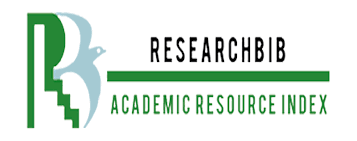Burnout Syndrome in working and non-working university students
DOI:
https://doi.org/10.35622/j.rep.2023.03.002Keywords:
academic stress, burnout syndrome, university students, well-beingAbstract
Burnout Syndrome has been considered a social problem of increasing importance among researchers and the practical community due to its negative impact on the well-being and performance of students. Working during the university course can be a risk factor for developing the syndrome, due to the overload of activities and roles. Thus, the objective of the study was to identify similarities and differences in the prediction of sociodemographic and academic variables and academic stressors for the Burnout Syndrome in a non-probabilistic sample of 417 working students and 596 non-working students. As instruments, the Burnout Syndrome Assessment Scale in University Students, a sociodemographic and academic questionnaire, and a questionnaire of academic stressors were used. The groups presented similar predictors such as perceiving the relationship with professors as a stressor, reconciling study and leisure, carrying out extracurricular work, and relationships with the institution, and differed in the variables gender, age, type of university, current semester, and stressors such as many subjects to attend, taking tests and assignments, and relationships with colleagues. Thus, the groups differ in terms of sociodemographic and academic variables and academic stressors, and similarities occur with academic stressors. In this sense, the results obtained suggest the need for differentiated interventions for both groups.
Estadísticas del Artículo
References
Abacar, M., Aliante, G. E., & Antonio, J. F. (2021). Stress e estratégias de coping em estudantes universitários. Aletheia, 54(2), 133-144. http://dx.doi.org/DOI10.29327/226091.54.2-13
Aguayo, R., Cañadas, G. R., Assbaa-Kaddouri, L., Cañadas-De La Fuente, G. A., Ramírez-Baena, L., & Ortega-Campos, E. (2019). A risk profile of sociodemographic factors in the onset of academic burnout syndrome in a sample of university students. International Journal of Environmental Research and Public Health, 16(5), 1-10. https://doi.org/10.3390%2Fijerph16050707
Balogun, J. et al. (1995). Test-retest reability of a psychometric instrument designed to measure physical therapy student’s Burnout. Perceptual and Motor Skill, 81(2), 667-672. https://psycnet.apa.org/doi/10.2466/pms.1995.81.2.667
Bartolj, T., & Polanec, S. (2021). An empirical analysis of the effects of student work and academic performance on the probability of employment. Economic and Business Review, 23(1), 26-39. http://dx.doi.org/10.15458/2335-4216.1003
Batista, F. V. C., & Castro, E. H. B. de (2022). Sobrecarga e desmotivação na vida acadêmica: Sentidos atribuídos à pressão do tempo por discentes do 7o ao 12o período de psicologia em instituição pública. Revista Educação e Humanidades, III(1), 270-301. https://periodicos.ufam.edu.br/index.php/reh/article/view/10326/7622
Bozkur, B., & Güler, M. (2023). Achievement need and burnout in university students: serial mediation by resilience and life satisfaction. Studia Psychologica, 65(1), 86-101. http://dx.doi.org/10.31577/sp.2023.01.868
Buzacarini, C., & Corrêa, E. A. (2015). Lazer dos estudantes universitários. Conexões: Revista da Faculdade de Educação Física da UNICAMP, 13(2), 15-28. http://dx.doi.org/10.20396/conex.v13i2.8640653
Caballero, C. C. (2012). El burnout académico: Prevalencia y factores asociados en estudiantes universitarios del área de la salud de la ciudad de Barranquilla. [Doctoral dissertation. Universidad del Norte, Colombia]. https://manglar.uninorte.edu.co/bitstream/handle/10584/7411/sindrome.pdf?sequence=1
Caballero, C. C., Bresó, E., & Gutiérrez, O. G. (2015). Burnout en estudiantes universitarios. Psicología desde el Caribe, 32(3), 424-441. http://dx.doi.org/10.14482/psdc.32.3.6217
Carlotto, M. S., Câmara, S. G., & Borges, Á. M. B. (2005). Predictores del síndrome de Burnout en estudiantes de un curso técnico de enfermería. Diversitas, 12(1), 95-204. http://dx.doi.org/10.15332/s1794-9998.2005.0002.07
Carlotto, M. S., Nakamura, A. P., & Câmara, S. G. (2006). Síndrome de Burnout em estudantes universitários da área da saúde. Psico/PUCRS, 37(1), 57-62. https://revistaseletronicas.pucrs.br/ojs/index.php/revistapsico/article/view/1412
Carlotto, M., & Câmara, S. G. (2008). Preditores da síndrome de burnout em estudantes universitários. Pensamiento Psicológico, 4(10), 101-109. https://www.redalyc.org/articulo.oa?id=80111670006
Carlotto, M., & Câmara, S. G. (2020). Escala de Avaliação da Síndrome de Burnout em estudantes universitários: construção e evidências de validade. Research, Society and Development, 9(7), 171974013. http://dx.doi.org/10.33448/rsd-v9i7.4013
Carvalho, T. K. P. de., & Cardoso, W. G. (2022). Estudantes-trabalhadores: percursos, ingresso e estratégias de permanência no ensino superior. Revista Científica Multidisciplinar Núcleo do Conhecimento, 08, 5-28. http://dx.doi.org/10.32749
Ceribeli, H. B., Camêlo, B. De C., & Maciel, G. N. (2022). Burnout no ensino superior: Um estudo no contexto brasileiro. Revista Gestão e Planejamento, 23, 250-267. https://dx.doi.org/10.53706/gep.v.23.7389
Chen, M., Li, R., & Feng, Y. (2021). The effect of attachment style on academic burnout: the mediating role of self-esteem and self-efficacy. Advances in Social Science, Education and Humanities Research, 561, 267-274. http://dx.doi.org/10.2991/assehr.k.210617.077
Cushman, S., & West, R. (2006). Precursors to college student burnout: Developing a typology of understanding. Qualitative Research Reports in Communication, 7(1), 23-31. https://doi.org/10.1080/17459430600964638
David, L. M. L., & Chaym, C. D. (2019). Evasão universitária: Um modelo para diagnóstico e gerenciamento de Instituições de Ensino Superior. Revista de Administração IMED, 9(1), 167-186. https://doi.org/10.18256/2237-7956.2019.v9i1.3198
Dantas, B. S. do A.; Silva, L. V. da. (2017). O cotidiano do trabalhador-estudante: Dimensões ideológicas dos discursos e práticas. Pretextos, 2(3), 273-294. http://periodicos.pucminas.br/index.php/pretextos/article/view/14260
Drăghici, G. L., & Cazan, A. M. (2022). Burnout and maladjustment among employed students. Frontiers in Psychology, 13, 825588. https://doi.org/10.3389/fpsyg.2022.825588
Emerson, D. J., Hair, J. F. & Smith, K. J. (2023). Psychological distress, burnout, and business student turnover: The role of resilience as a coping mechanism. Research in Higher Education, 64, 228–259. https://doi.org/10.1007/s11162-022-09704-9
Fariborz, N., Hadi, J., & Ali, T. N. (2019). Students’ academic stress, stress response and academic burnout: Mediating role of self-efficacy. Pertanika Journal of Social Sciences & Humanities, 27(4), 2441-2454. http://www.pertanika.upm.edu.my/
Fiorilli, C., Barni, D., Russo, C., Marchetti, V., Angelini, G., & Romano, L. (2022). Students’ burnout at university: The role of gender and worker status. International Journal of Environmental Research Public Health, 19, 11341. https://doi.org/10.3390/ijerph191811341
Galbraith, C. S., & Merrill, G. B. (2012). Academic and work-related burnout: A longitudinal study of working undergraduate university business students. Journal of College Student Development, 53(3), 453-463. https://psycnet.apa.org/doi/10.1353/csd.2012.0044
Kafrouni, R. S., Domingues, R. de C., Antunes, A. P. L. (2020). Dificuldades acadêmicas na universidade: análise das queixas relatadas por estudantes. In P. M. F. de Faria, D. Camargo, & A. C. L. Venâncio, (Orgs.), Vigotski no Ensino Superior. Concepção e práticas de inclusão. Editora Fi.
Fogaça, M. De C., Hamasaki, E. I. De M., Barbieri, C. A. P., Borsetti, J., Martins, R. Z., Silva, I. G., & Ribeiro, L. P. (2012). Burnout em estudantes de psicologia: diferenças entre alunos iniciantes e concluintes. Aletheia, 38-39, 124-131. http://pepsic.bvsalud.org/pdf/aletheia/n38-39/n38-39a10.pdf
Kienen, N., & Botomé, S. P. (2003). As relações entre controle sobre o trabalho e condições de saúde de alunos universitários. Interação em Psicologia, 7(2), 11-22. http://dx.doi.org/10.5380/psi.v7i2.3219
Kim, B., Jee, S., Lee, J., An, S., & Lee, S. M. (2018). Relationships between social support and student burnout: A meta-analytic approach. Stress Health, 34(1), 127-134. https://doi.org/10.1002/smi.2771
Kordzanganeh, Z., Bakhtiarpour S., Hafezi F., & Dashtbozorgi, Z. (2021). The relationship between time management and academic burnout with the mediating role of test anxiety and self-efficacy beliefs among university students. Journal of Medical Education, 20(1), e112142. http://dx.doi.org/10.5812/jme.112142
Koropets, O., Fedorova, A., & Kacane, I. (2019, July). Emotional and academic burnout of students combining education and work. Proceedings of EDULEARN19, Palma, Mallorca, Spain. http://lib.uib.kz/edulearn19/files/papers/2038.pdf
Lin, S., & Huang, Y. (2014). Life stress and academic burnout. Active Learning in Higher Education, 15(1), 77-90. https://doi.org/10.1177/1469787413514651
Lima, J. S. S. de, Oliveira, A. M. B. de, & Sousa, J. C. de. (2020). Saúde psíquica e prevalência da Síndrome de Burnout em discentes. Revista Contemporânea de Educação, 15(32). http://dx.doi.org/10.20500/rce.v15i32.28838
Lima, V. de A. (2021). Síndrome de Burnout: Características sociodemográficas, estilo de vida e psicossociais em trabalhadores-estudantes. [Dissertação de Mestrado, Universidade Federal de Goiás] https://cutt.ly/fwpzqG3S.pdf
Lingard, H. (2007). Conflict between paid work and study: Does it impact upon students’ burnout and satisfaction with university life?. Journal for Education in the Built Environment, 2(1), 90-109. https://doi.org/10.11120/jebe.2007.02010090
Lúcio, S. S. R., Medeiros, L. G. da S, Barros, D. R., Ferreira, O. D. L., & Rivera, G. A. (2019). Níveis de ansiedade e estresse em estudantes universitários. Temas em Saúde, Edição especial, 260-274. https://temasemsaude.com/wp-content/uploads/2019/03/fippsi15.pdf
Martínez-Rubio D., Colomer-Carbonell, A., Sanabria-Mazo, J. P., Pérez-Aranda, A., Navarrete, J., Martínez-Brotóns, C.,..Feliu-Soler, A. (2023). How mindfulness, self-compassion, and experiential avoidance are related to perceived stress in a sample of university students. Plos One, 18(2), e0280791. https://doi.org/10.1371/journal.pone.0280791
Marôco, J. (2007). Análise estatística com utilização do SPSS (3ª ed.). Edições Sílabo.
Maslach, C., Schaufeli, W. B., & Leiter, M. P. (2001). Job burnout. Annual Review of Psychology, 52(1), 397-422. https://doi.org/10.1146/annurev.psych.52.1.397
Montoya-Restrepo, L. A., Uribe-Arévalo, A. E., Uribe-Arévalo, A. J., Montoya-Restrepo, I. A., & Rojas-Berrio, S. P. (2021). Burnout académico: impacto de la suspensión de actividades académicas en el sistema de educación pública en Colombia. Panorama, 15(29), 158–175. https://doi.org/10.15765/pnrm.v15i29.2319
Moura, G., Brito, M., Pinho, L., Reis, V., Souza, L., & Magalhães, T. (2019). Prevalência e fatores associados à síndrome de burnout entre universitários: revisão de literatura. Psicologia, Saúde & Doenças, 20(2), 300-318. https://doi.org/10.1590/2317-6369000030318
Oliveira, C. T. de, Wiles, J. M., Fiorin, P. C., & Dias, A. C. G. (2014). Percepções de estudantes universitários sobre a relação professor-aluno. Psicologia Escolar e Educacional, 18(2), 239-246. https://doi.org/10.1590/2175-3539/2014/0182739
Önder, I., Önder, A. N., & Yildirim, E. G. (2023). Burnout and engagement in university students: relationships with morningness-eveningness preferences, average sleep length and social jetlag. Biological Rhythm Research, 54(1), 70-85. https://doi.org/10.1080/09291016.2022.2088662
Pinto, F. C. V., Silveira, L. G. da, Chaves, M. A. T., & Stocker, F. (2020). Jornada profissional e acadêmica: o conflito e o impacto na qualidade de vida no trabalho. Revista ADMPG, 10, e2014761, 1-13. https://doi.org/10.5212/Admpg.v.10.14761.005
Ribeiro, M. L. (2020). A relação professor-estudante na educação superior. Educação em Análise, 5(1), 185-200. https://doi.org/10.5433/1984-7939.2020v5n1p185
Robins, T. G., Roberts, R. M., & Sarris, A. (2018). The role of student burnout in predicting future burnout: exploring the transition from university to the workplace. Higher Education Research & Development, 37(1), 115-130. https://doi.org/10.1080/07294360.2017.1344827
Rosales-Ricardo, Y., Rizzo-Chunga, F., Mocha-Bonilla, J., & Ferreira, J. P. (2021). Prevalence of burnout syndrome in university students: A systematic review. Salud Mental, 44(2), 91-102. http://dx.doi.org/10.17711/SM.0185-3325.2021.013
Salgado, S., & Oliveira, M. A. Y. (2021). Student Burnout: A case study about a Portuguese public university. Education Science, 11(31). https://doi.org/10.3390/educsci11010031
Schaufeli, W. B., Martínez, I. M., Pinto, A. M., Salanova, M., & Bakker, A. B. (2002). Burnout and Engagement in University Students: A Cross-National Study. Journal of Cross-Cultural Psychology, 33(5), 464–481. https://doi.org/10.1177/0022022102033005003
Schramer, K. M., Rauti, C. M., Kartolo, A. B., & Kwantes, C. T. (2020). Examining burnout in employed university students. Journal of Public Mental Health, 19(1), 17-25. https://doi.org/10.1108/JPMH-05-2019-0058
Silva Filho, B. F da, Santos, R. N., Souza, A. J. de, Constâncio, J. F., & Munaro, H. L. R. (2020). Fatores associados ao estresse em universitários. Research, Society and Development, 9(9), e480997129. https://doi.org/10.33448/rsd-v9i9.7129
Tumin, A. F., Mansir, F., Purnomo, H., & Aisyah, N. (2020). Working students in higher education: Challenges and solutions. Al-hayat: Journal of Islamic Education, 4(1), 79-89. http://dx.doi.org/10.35723/ajie.v4i1.108
Vieira, N. F., Santiago, I., & Pereira, S. (2021). O alto índice de sofrimento emocional em estudantes universitários: uma revisão integrativa de literatura. Research, Society and Development, 10(15), e126101522766. https://doi.org/10.33448/rsd-v10i15.22766
Wink, M. N., LaRusso, M. D., & Smith, R. L. (2021). Teacher empathy and students with problem behaviors: Examining teachers' perceptions, responses, relationships, and burnout. Psychology in the Schools, 58(8), 1575-1596. https://doi.org/10.1002/pits.22516
Yang, H. J. (2004). Factors affecting student burnout and academic achievement in multiple enrollment programs in Taiwan’s technical-vocational colleges. International Journal of Educational Development, 24, 283–301. https://doi.org/10.1016/j.ijedudev.2003.12.001
Published
Issue
Section
License
Copyright (c) 2023 Mary Sandra Carlotto (Autor/a); Sheila Gonçalves-Câmara (Traductor/a)

This work is licensed under a Creative Commons Attribution 4.0 International License.
La Revista Estudios Psicológicos del Instituto Universitario de Innovación Ciencia y Tecnología Inudi Perú está sobre una licencia internacional Creative Commons Atribución 4.0. Lo que permite que los archivos sean de libre acceso y distribuidos libremente.
LOS AUTORES RETIENEN SUS DERECHOS:
- Los autores retienen sus derechos de marca y patente, y tambien sobre cualquier proceso o procedimiento descrito en el artículo.
- Los autores retienen el derecho de compartir, copiar, distribuir, ejecutar y comunicar públicamente el artículo publicado en la Revista Estudios Psicológicos (por ejemplo, colocarlo en un repositorio institucional o publicarlo en un libro), con un reconocimiento de su publicación inicial.
- Los autores retienen el derecho a hacer una posterior publicación de su trabajo, de utilizar el artículo o cualquier parte de aquel (por ejemplo: una compilación de sus trabajos, notas para conferencias, tesis, o para un libro), siempre que indiquen la fuente de publicación (autores del trabajo, revista, volumen, número y fecha).



















